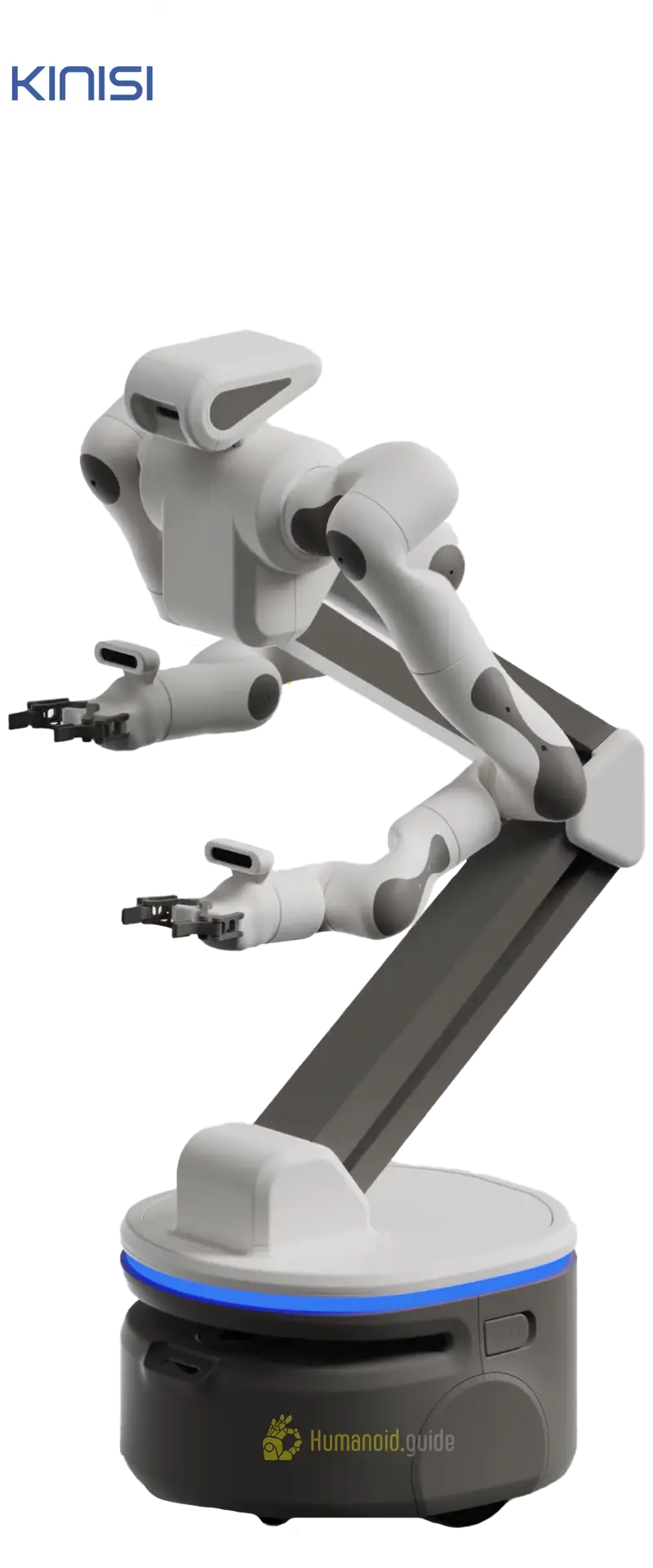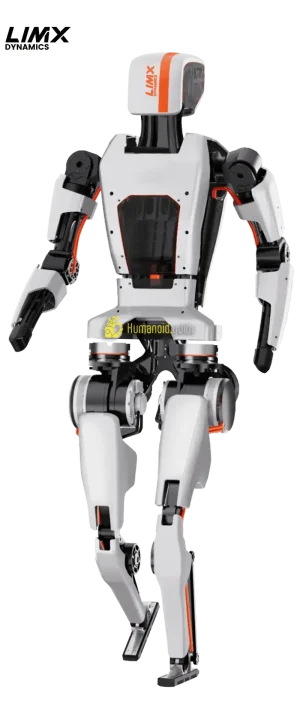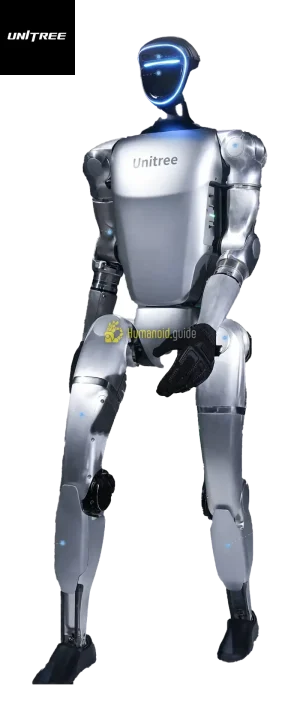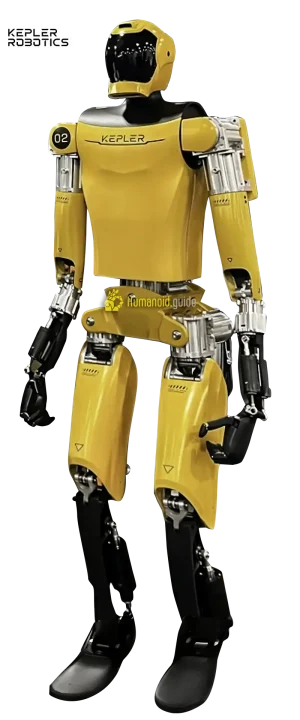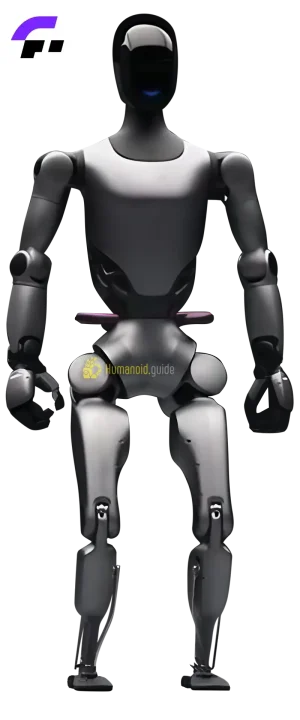Kinisi 01

$ 75 000

Kinisi Robotics
Kinisi 01 / KR1 is a USD 75k wheeled humanoid‑form robot from California‑based Kinisi Robotics, built to handle 10 kg warehouse pick‑and‑place tasks for up to eight hours on a single, hot‑swappable battery.
Skill Score
 2
2Specifications and details:
| Availability | Prototype |
|---|---|
| Nationality | US |
| Website | https://www.kinisi.com/ |
| Degrees of freedom, overall | Not specified |
| Degrees of freedom, hands | Not specified |
| Height [cm] | Not specified |
| Manipulation performance | 2 |
| Navigation performance | 2 |
| Max speed (km/h) | Not specified |
| Strength [kg] | 10 |
| Weight [kg] | Not specified |
| Runtime pr charge (hours) | 8, hot‑swappable battery |
| Safe with humans | Yes |
| CPU/GPU | Not specified |
| Ingress protection | Not specified |
| Camera resolution | Not specified |
| Connectivity | Not specified |
| Operating system | Not specified |
| LLM integration | Not specified |
| Latency glass to action | Not specified |
| Motor tech | Not specified |
| Gear tech | Not specified |
| Main structural material | Not specified |
| Number of fingers | 4 |
| Main market | retail restocking, Warehouse & logistics pick‑/place |
| Verified | Not verified |
| Walking Speed [km/h] | N/A |
| Shipping Size | N/A |
| Color | N/A |
| Manufacturer | Kinisi Robotics |
Description
Kinisi Robotics set out to create a “practical humanoid” that fits seamlessly into today’s aisles and work‑cells; KR1 keeps two human‑scale arms while moving on a low‑profile omnidirectional base, avoiding the complexity of bipedal legs yet preserving reach, shelving height, and line‑of‑sight interaction.
2026 Humanoid Robot Market Report
160 pages of exclusive insight from global robotics experts – uncover funding trends, technology challenges, leading manufacturers, supply chain shifts, and surveys and forecasts on future humanoid applications.

Featuring insights from
Aaron Saunders, Former CTO of
Boston Dynamics,
now Google DeepMind

2026 Humanoid Robot Market Report
160 pages of exclusive insight from global robotics experts – uncover funding trends, technology challenges, leading manufacturers, supply chain shifts, and surveys and forecasts on future humanoid applications.
The robot’s dual‑end gripper (two fingers each) swaps quickly for cartons, poly‑bags, or totes, and the industrial‑grade chassis supports a 10 kg payload. Kinisi advertises eight‑hour autonomy with hot‑swap packs and an auto‑dock station, enabling 24/7 cycles without shutting down.
All perception and planning run locally—lidar‑aided vision plus an “advanced vision system” feed a reinforcement‑learning controller, so KR1 doesn’t depend on cloud latency. The company says modern large‑language‑model reasoning underpins task generalisation, allowing operators to demonstrate new workflows with no coding.
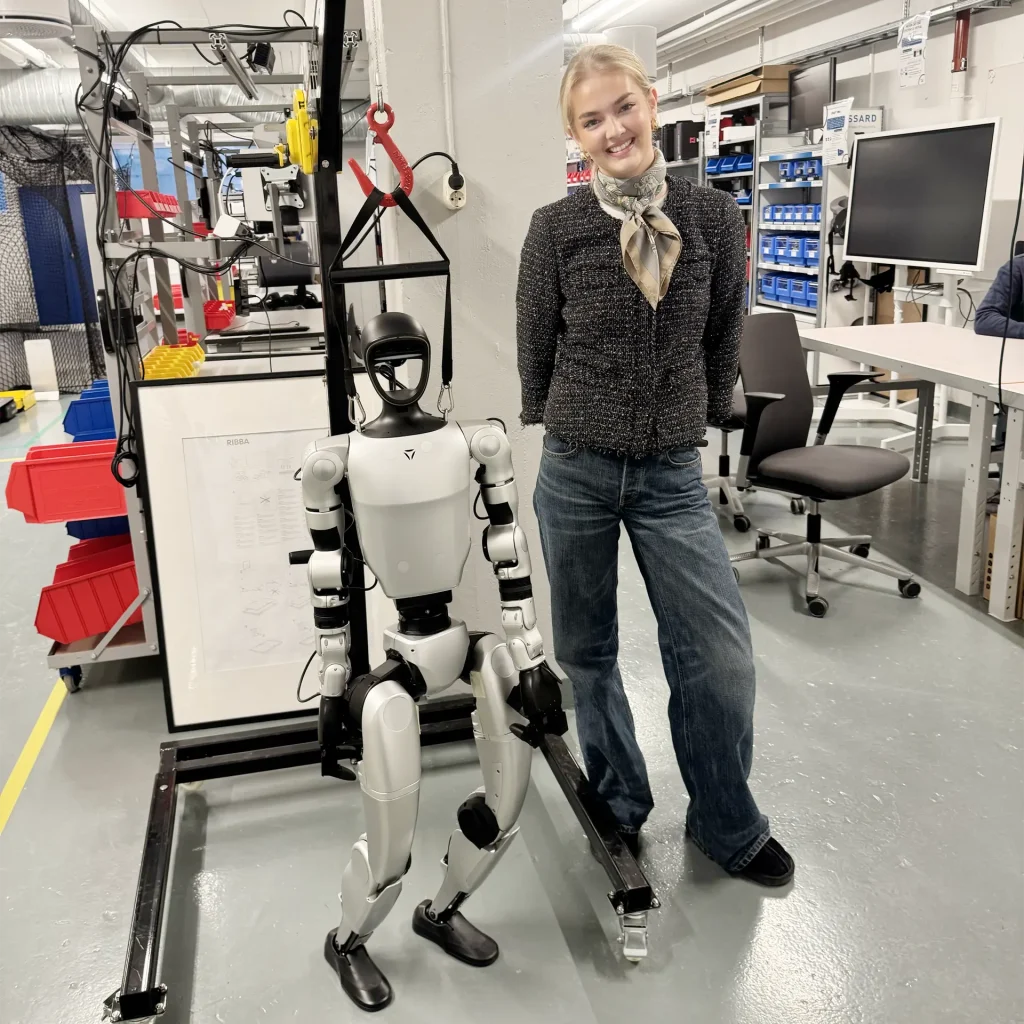
I’m Olivia, Humanoid Analyst at Humanoid.Guide
My mission, together with the team, is to help your organization understand the landscape, compare solutions, and move toward successful robot deployments.
First revealed mid‑2025 as a working prototype, KR1 is now in paid pilot programmes with a list price of USD 75 000—positioning it as a mid‑range alternative to fixed‑arm cells. Kinisi has raised about $2 million in seed funding and is recruiting partners in fulfilment, retail replenishment, and light manufacturing ahead of a planned production ramp in 2026.

